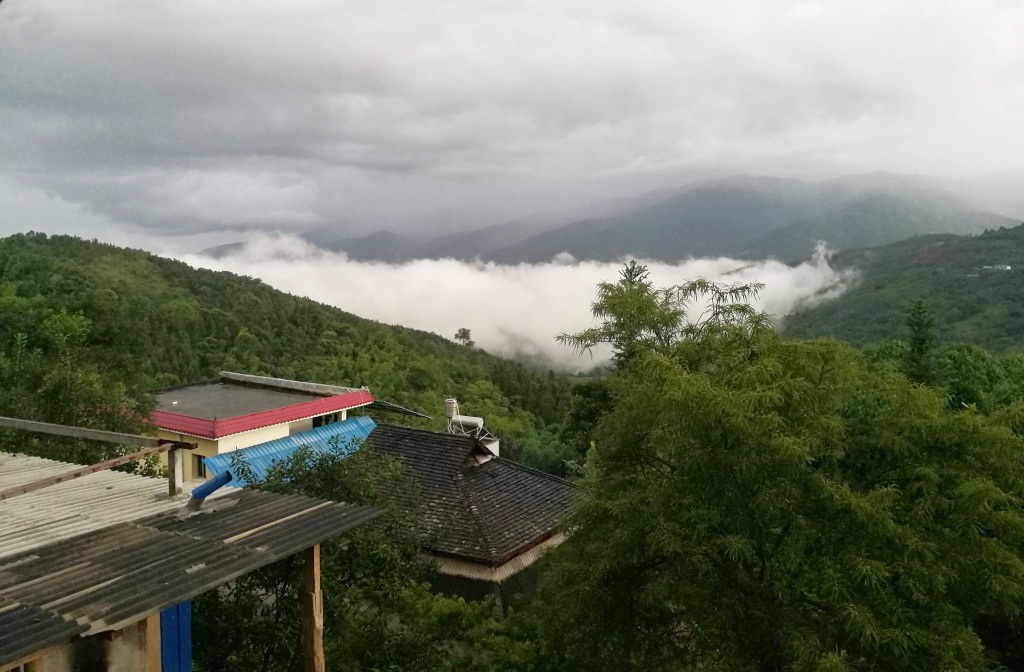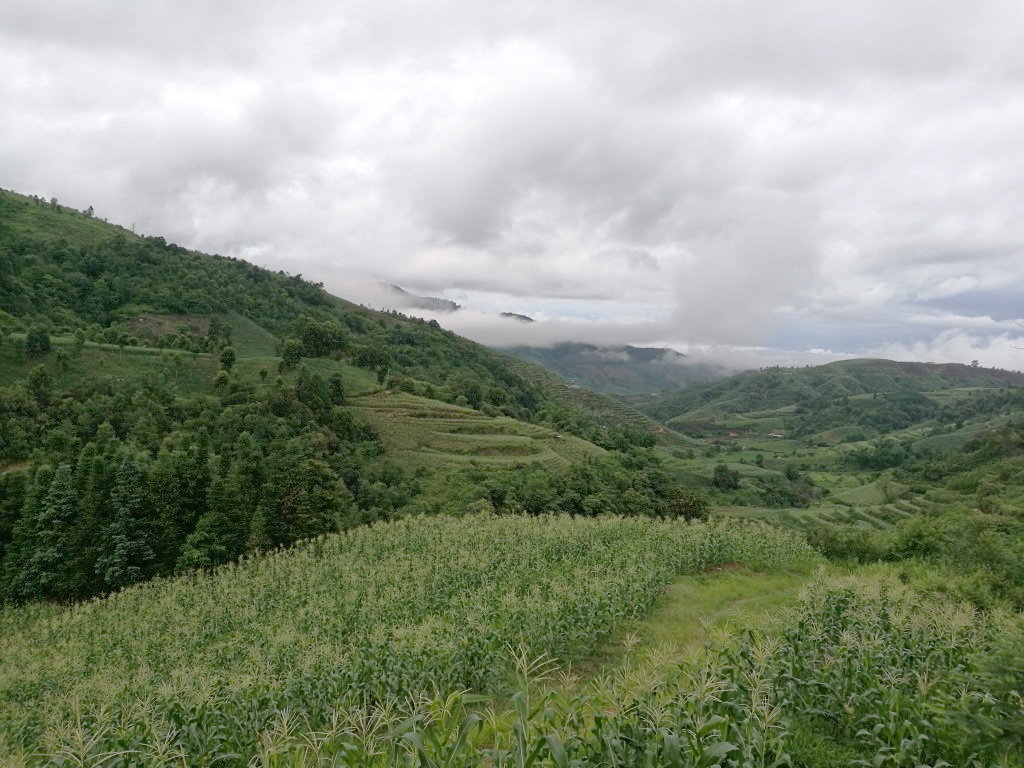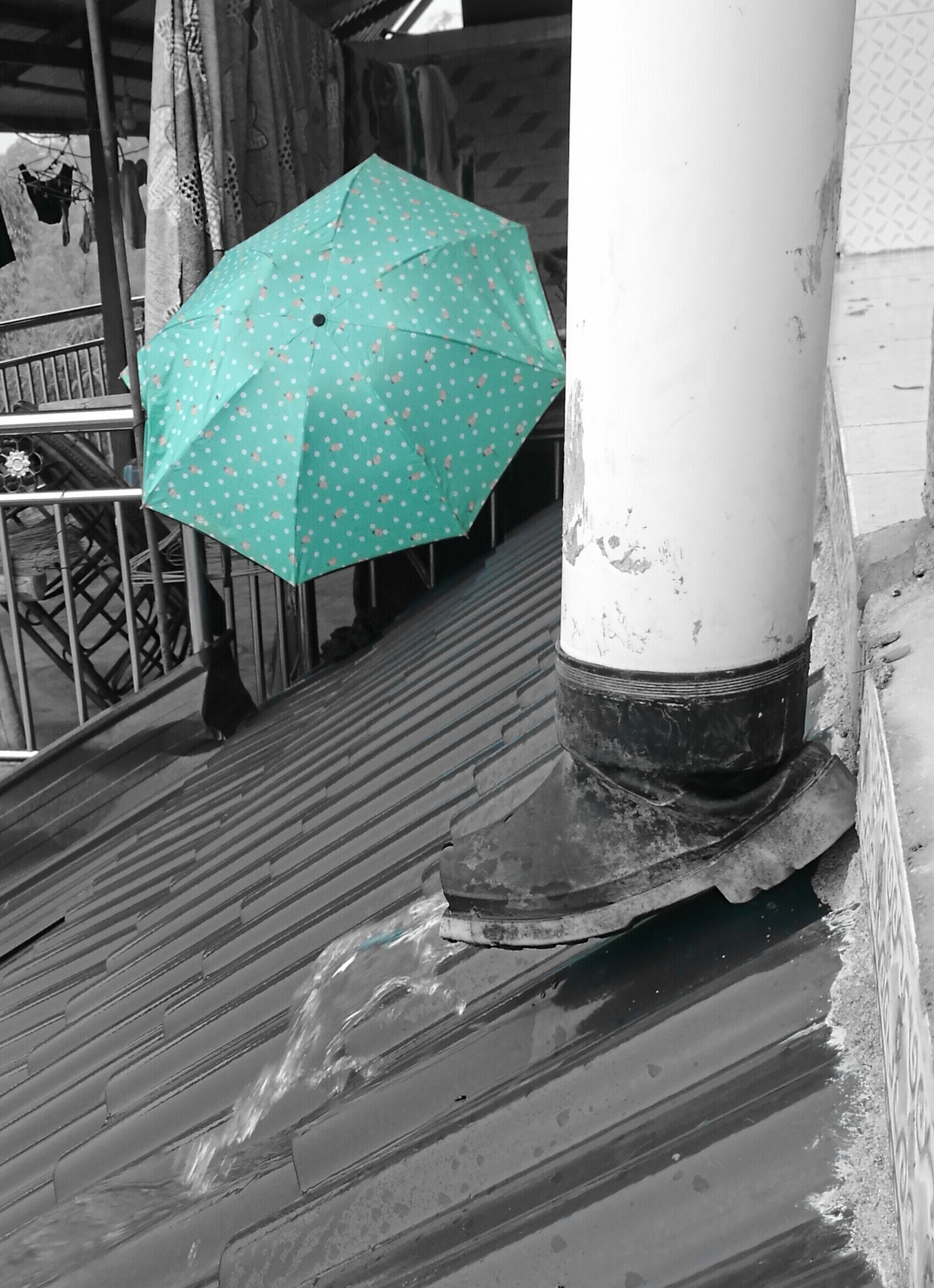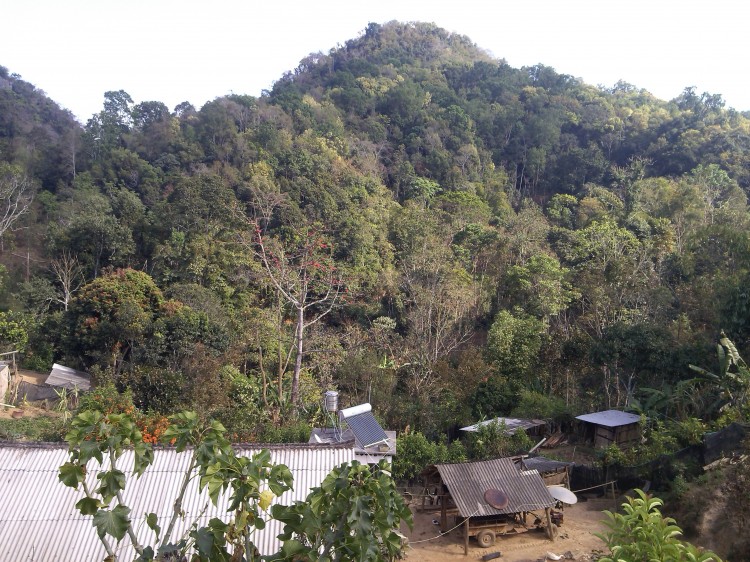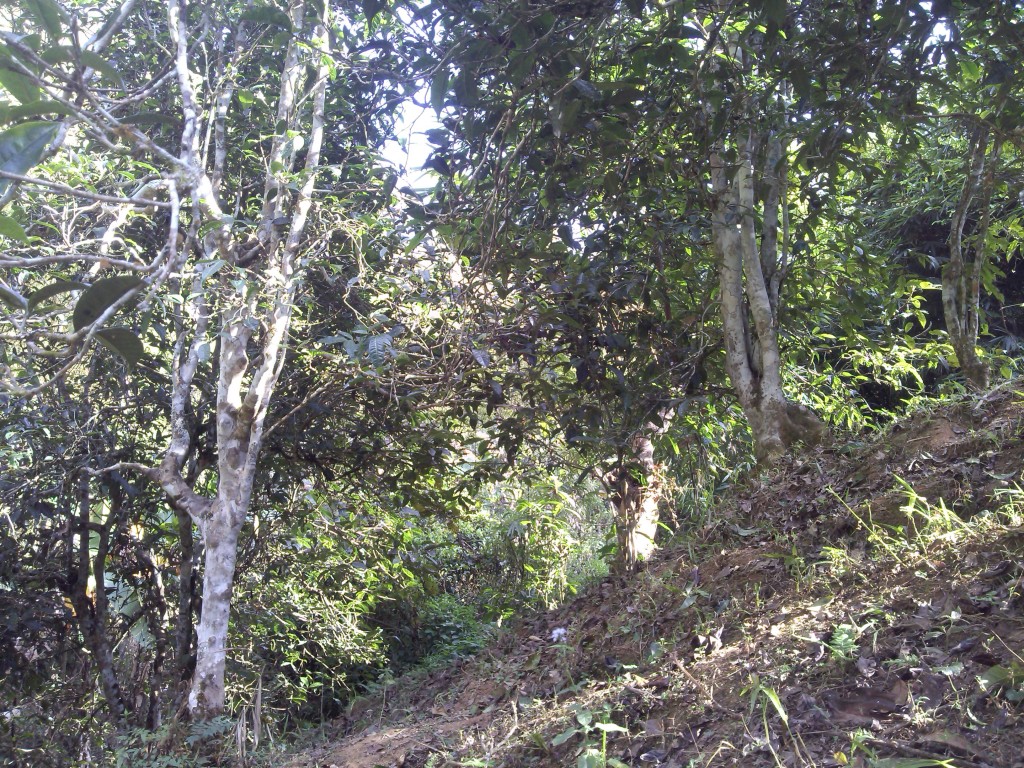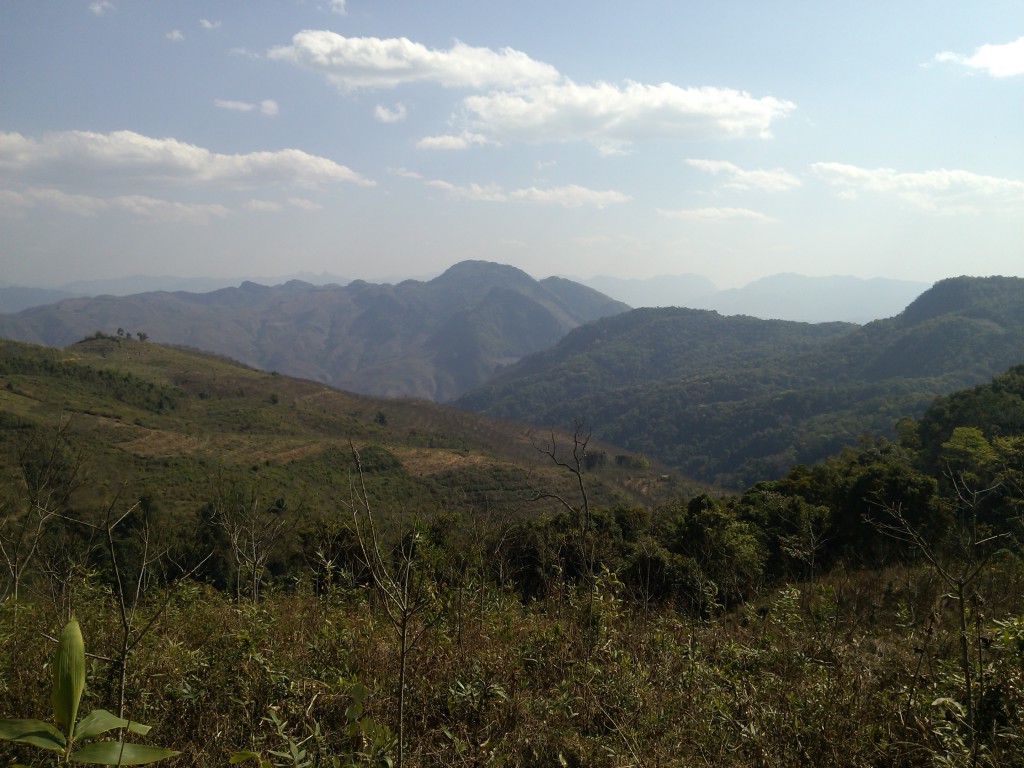It’s ‘Swing Festival’ again. Hard to believe. Another year gone. I’m not sure I could satisfactorily list what I’ve accomplished in the last 12 months. It seems like not much, but I’ve made a fair chunk of tea, and drunk a lot too. Some of it courtesy of an Aini tea farmer on Nan Nuo Shan whose tea gardens are between Shi Tou Zhai and Ban Po Zhai.
Someone once said to me ‘The thing that’s special about Nan Nuo Shan tea is that there’s nothing special about it’. It’s not exactly true: at it’s best it’s floral-fruity, with plenty of body, some heftiness with a distinct bitterness and astringency, and a good hui gan. A good solid tea that has so far escaped some of the extreme, fad-driven price fluctuations that have affected some other places. There’re differences between villages or tea gardens of course. Ban Po Lao Zhai is often a little more astringent than Shi Tou Zhai, etc. and of course, Ba Ma is another story.
This year it was raining heavily the day we went so we skipped the swing and stayed inside eating and drinking tea. The village, like others on Nan Nuo Shan runs on tea. They have tea gardens above Ban Po Lao Zhai even though they moved down from there many years ago to a village nearer the road because they still maintain land there that was apportioned to them at the time of the move. As with many other villages, people here grow some other crops too. Some rent land near the foot of the mountain to grow paddy, and they often grow some vegetables near the village.
The day before, I went to Pasha, where I hadn’t been for ages, but after repeated invitations from a tea farmer there I decided it was time to go. I went on the ‘new’ concrete road that was finished a couple of years ago that runs around the south of Nan Nuo Shan to Gelang He. It shortens the trip from Jinghong by about half. On the way I bumped into the tea farmer from Nan Nuo Shan who, on his way home had just had the misfortune to have a scrape with a Range Rover on a tight, sloping corner. They were lucky. Neither he nor his wife, who was on the back of the motorbike were badly hurt, but his bike was unrideable. He was waiting for his brother in law to come and pick them and the bike up. He forked out 2000 yuan to pay off the Range Rover driver to boot, even though it was questionable who was at fault. That’s the cost of riding an unregistered bike (something that many mountain dwellers do here), particularly on a tricky mountain road in the rain.
Pasha, like Nan Nuo Shan is inhabited by Aini tea farmers. Their language and customs are the same. They both celebrate Ye Ku Zha – Swing Festival – at around the same time of year.
I think I’ve finally figured out how the date of the festival is determined: according to some folks it starts on the first ‘bull’ day of the sixth month of the ‘nong li’ or traditional farmers’ calendar. But there’s a problem with that because in Pasha it started this year, 2017, on July 13th, which was the second ‘bull’ day of the sixth lunar month and the rest of the Gelang He area it started on the third ‘bull’ day. According to my host, they start on the third ‘bull’ day in the Julian month of July. Make of all that what you will.
Aini (Hani) people are outward-looking, readily adapting to and taking on things they like or see as useful – Nan Nuo Shan is pretty well stocked with upscale cars these days – and they are much more open to outsiders than say, Bama’s Lahu people. They are also often quick witted business people. But they have an interior life which is less easy to access – they have an Aini name, for example – not the name on their documents, a public name, a name ‘for the government’, but a name only used by close family or friends that someone like me will likely never be allowed to utter. Last year the tea farmer I just visited for Ye Ku Zha actually told me his name, but at the same time made it clear that it wasn’t for me to use it.
Whilst their lives are changing rapidly – everyone who can, gets a car, pulls down their wooden house to replace it with something ‘fait de beton’ – Aini people, in this area at least continue to value their own culture and are not in immediate danger of being ‘han hua’d’ any time soon, maintaining, apart from their own festivals, their own language and customs – children all grow up speaking their mother tongue – and they still take time to make some of their own clothes and bags, albeit only worn on special occasions.

